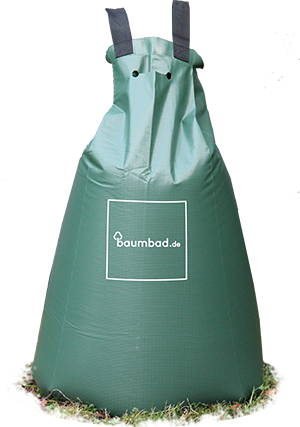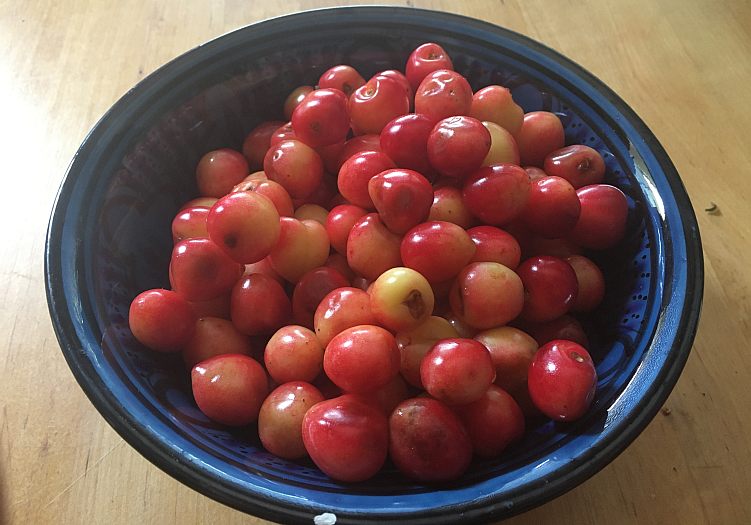Your shopping cart is currently empty.
| Subtotal | €0,00 |
| Shipping Rate | including VAT, excl. Shipping Rate |
| Total | €0,00 |
|---|
05.07.2023
Read article
«Trees feed us with their fruits and roots, leaves and flowers. Without trees we would have no tools, no houses, cars, books, computers - and no fire. Trees protect us from the imponderables of nature, from cold and heat. We would be nothing without trees - we need them like the air we breathe. " Andreas Rabbit
The importance of trees for our diet used to be much more important than it is today.
Apples, pears, cherries and plums made an important contribution to the diet of the rural population in particular. These fruits were eaten fresh, stored in the cellar or preserved. Folk cuisine knows many ways to preserve the fruits of trees.
In many rural regions, for example, chestnuts were considered the bread of the poor. Before industrialized agriculture, the nutritional value per hectare of chestnuts was significantly higher than that of the cultivation of grain, the productivity of which was only massively increased in the 19th century.
 Another example is walnuts: In Germany, they were an important part of the diet for a long time. However, the walnut tree population was decimated by the two world wars because their wood was needed for the manufacture of rifle stocks.
Another example is walnuts: In Germany, they were an important part of the diet for a long time. However, the walnut tree population was decimated by the two world wars because their wood was needed for the manufacture of rifle stocks.
But trees and their fruits were not only important for the vegetarian diet. A saying from the Middle Ages says: "The best chic grow on the oaks". Meat used to be rare and would have been even rarer without the fruit of the trees.
In the Middle Ages, pigs were driven to acorn-fed forests in the Hudewald. There are still contemporary witnesses from this practice in Ivenack (Mecklenburg). The oldest of these oaks are over 1200 years old. You were already standing at the time of Charlemagne.
And how does it look today?
Today, the fruits of trees seem to be becoming more important again - especially for health-conscious people. Apples, walnuts and cherries are now supplemented with mangoes, almonds and avocados.
Still popular and known today are: maple syrup, elderberry syrup, birch sap, acorn coffee, hazelnut pesto and linden blossom tea. Most people no longer have their own trees, but buy the nuts and fruits.
Our settlements and cities are full of trees. Perhaps we could plant more “edible” trees in public parks, as a kind of modern commons? These edible trees could promote the bond with urban greenery and strengthen the relationship between the population and the city and its natural surroundings. And they could also make a supplementary contribution to our diet.

In addition to apple, cherry, fig and walnut trees, there could also be lesser-known trees. For example: A Japanese friend collects ginkgo seeds in our city and turns them into delicious food.
A very interesting example regarding edible trees is that edible city of Andernach. Trees and other plants are grown there, from which the population can freely harvest.
And many people also have their own trees, especially in the countryside. My parents, for example, have their own piece of forest. They make honey from the young spruce shoots.
For example, we do this here Plum Chutney, Vermicelli, Elderflower syrup and sometimes too Graubünden nut cake. But also jams and juices. We dry the surplus apples and pears.
Andrew Hunkeler
Dipl. Social and cultural anthropologist with a focus on sustainable and participatory green space design in cities. (More about the author).
My vision is to bring together: people and trees, nature and culture, population and urban authorities.
If you have any questions, suggestions, interesting stories or exciting knowledge on this topic, please write to me: andreas@baumbad.de. I'm looking forward to your message!
Do you want more tree knowledge?
That might interest you
Great idea, easy handling and everything from ordering to delivery.
Michael K.
















